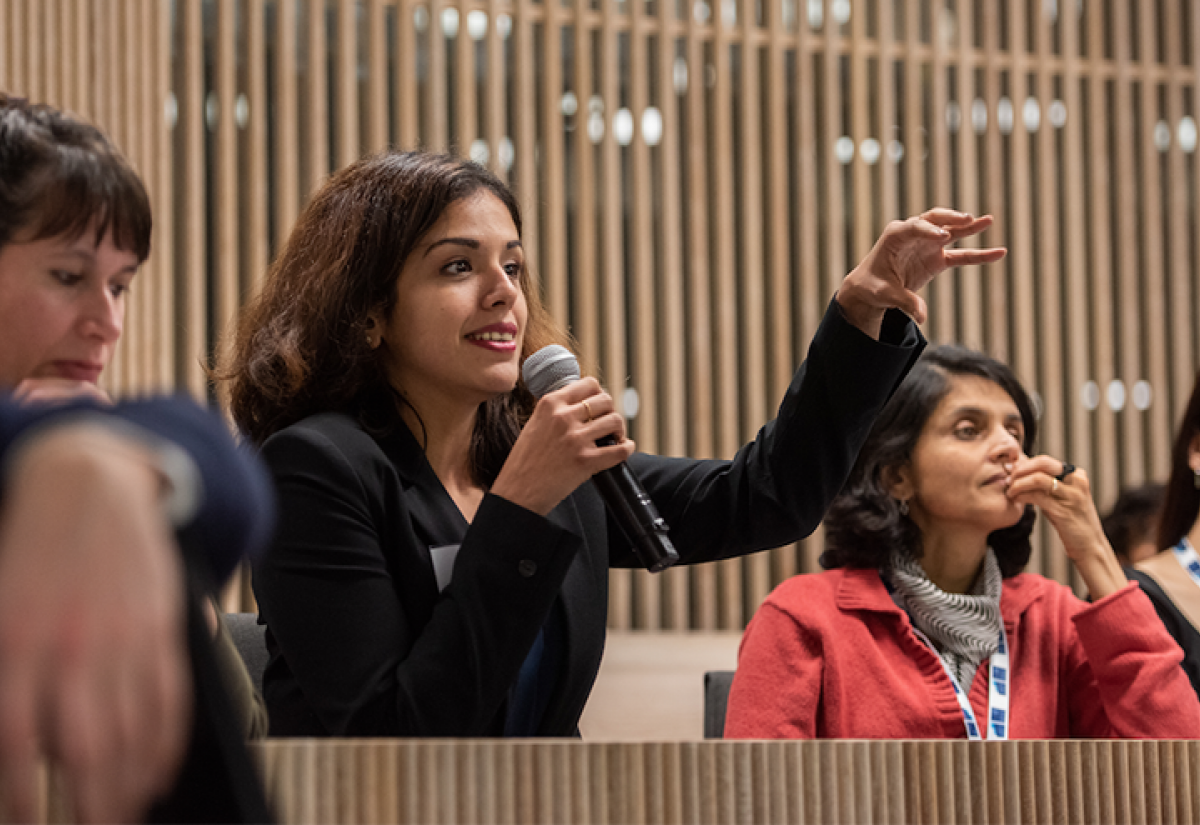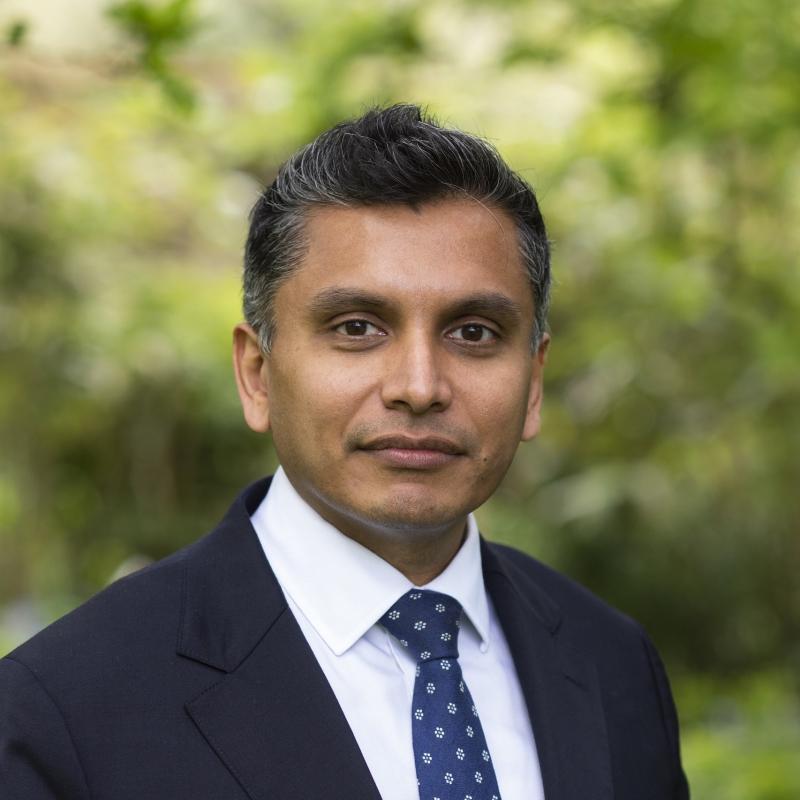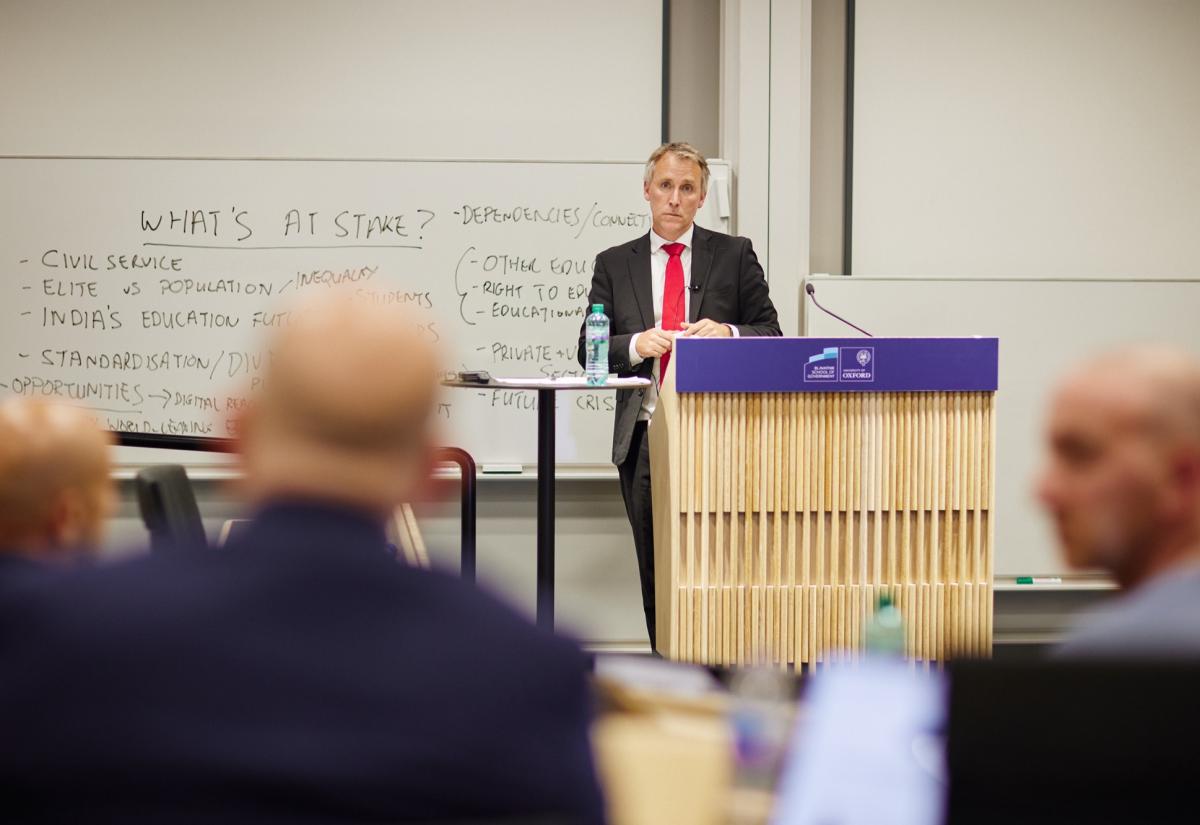How immersive role-plays and simulations prepare leaders for real-world challenges
Case writer Oenone Kubie provides insight into how immersive role-plays and simulations make up a central component of the Master of Public Policy course and explains why they are effective tools for training future leaders.

This year’s cohort of MPP students might not have expected that role-plays and simulations would be such an important part of their curriculum.
During the first term, they were thrust into tricky public sector negotiations with a series of interactive role-plays. Their year will conclude with a complex, multiday simulation pulling together key lessons from the entire master’s programme.
Unlike with traditional case studies, where participants consider a dilemma from a protagonists’ point of view, in role plays and simulations, participants literally have to adopt a role and act as that individual in order to achieve a goal. These interactive teaching tools are vital to help public-sector professionals develop important leadership skills.
Role-plays and simulations in teaching
Public leaders today confront challenges that require unprecedented levels of collaboration – across countries, cultures, and deep ideological divides. Of course, our public-sector leaders need to know the hard skills of policymaking, from economic analysis to drafting legislation. But softer skills like coalition building, good judgement and empathy are also crucial to solving the biggest challenges we face.
Teaching these skills to future and current public leaders is central to the missions of schools of government, but it is not easily done through traditional teaching methods such as lectures and seminars. Instead, role-plays and simulations, which are commonly used in business schools and medical education, can develop these soft skills alongside consolidating their knowledge in other areas.
As one former student recently reflected on his experience of a simulation, “[it] was an absolutely indispensable experience, teaching us about organising and coordinating teamwork, defining priorities, and building coalitions around your goals.” And at the end of a good role-play or simulation, everyone, even the faculty, will learn something new every time.
How do role-plays and simulations work?
At the simplest level, role-plays give participants the opportunity to take on different points of view and interact with each other while in character to resolve an issue, exercising judgement and making choices on how to best pursue their goals. All role-plays and simulations require a debrief where the instructor can draw out the learning objectives and consolidate insights.
Role-plays can form just one part of a broader class discussion. In the Blavatnik School case study ‘Confronting corruption in Paraguay’s housing ministry’ students role-play a difficult conversation between the housing minister and a senior civil servant accused of corruption. The task helps participants move beyond providing simplistic advice (such as ‘the minister should just send the civil servant away’) to develop more sophisticated ways for navigating a complex situation.
Then, there are specifically designed role-plays where students are assigned confidential instructions with role-specific briefs detailing their motives, goals, and red lines. In our role-play, ‘Mining royalties in Nafasia’, for example, students receive a confidential brief for either the role of minister of mines or the representative of the mining company. In pairs, students must then negotiate a mining royalty rate and, in doing so, experience for themselves the key challenges and moves of a simple, two-party negotiation.
At the most complex end of the scale are simulations. These are complicated scenarios with live updates that change the storyline as the simulation progresses. Students must work within and across teams to navigate the evolving scenario. The Blavatnik School’s flagship simulation is a 1.5-day crisis simulation entitled Red Alert: North Korea Crisis Simulation, which recently won an award for innovative teaching at the University of Oxford.
Building motivation to learn, communication and teamwork
Back in the 1980s, psychologist Gary Klein researched how people make decisions in complex and high-stakes situations of incomplete information and limited time–the reality for many people in leadership positions. His famous study on firefighters showed that, in such situations, people draw from previous experiences and familiar patterns, rather than analysing and applying logic. Immersive learning that ‘simulates’ such situations helps participants develop patterns and knowledge that can be accessed when it really matters.
Since the 1980s, research has gone further to show that using immersive, authentic learning models like role-plays and simulations leads to students who are more able to connect and apply interdisciplinary and theoretical knowledge, practice higher-order thinking skills, such as analysis and synthesis, and use professional skills, such as communication and teamwork. They are also more motivated to learn.
A tool to boost empathy and active listening
Beyond these skills however, we believe that role-plays and simulations are among the best tools instructors in schools of government have for teaching future public leaders empathy and active listening. In the Blavatnik School role-play, FSO Safer: negotiating to avoid disaster, for example, participants take on the perspectives of parties from across the Yemeni civil war. They must practice these vital skills if they are to solve the issue at hand and prevent a humanitarian, economic and ecological disaster. Without an empathetic, listening approach, the negotiation will falter – or even fail altogether.
We have found that when students are required to take on a role (especially one where the values, norms, and background may be quite different to their own) and are then required to act within that role to achieve a goal, they leave the classroom more open to other perspectives, more willing to reconsider assumptions, and more able to build unlikely coalitions. When our future leaders are equipped with these skills, we hope the world will be better served, better led and better governed.
To learn more about interactive teaching using role plays and simulations, attend our Case Method for Public Policy workshop, 23-24 April 2025.





